
More Articles
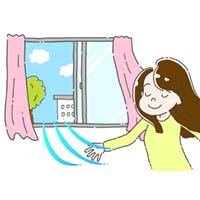
"Your home is your castle." Or so the saying goes. Naturally, you would want the air inside that castle to be fresh, clean and healthy. But do you buy into everything you hear about cleaning the ducts in your home? Are dust mites really the size of small earthmovers? Will duct cleaning improve your health? With this two-part FAQ we will answer some questions you may have had on the subject. And then you can make your own decisions about it.
Cleaning the air conditioning systems in a home. Frequenty Asked Questions. Part One
Why even clean the A/C system?
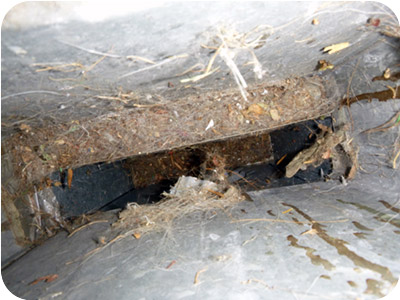
Just like anything you own, you clean it on occasion. Some things get cleaned more often than others, like the dishes, floors, clothing. Some things less frequently, such as beneath the couch where those dust bunnies live.
An HVAC system is no different. But since the ducts are unseen, hidden in attics and behind walls, you might not even think about it. It takes some time for the ductwork of an A/C system to get dirty enough that it needs cleaning, but they do get dirty! Further, a dirty system will tend to make the equipment work harder and operate less efficiently.
See George Machado’s article on the topic here:
How can you tell if the system needs to be cleaned?
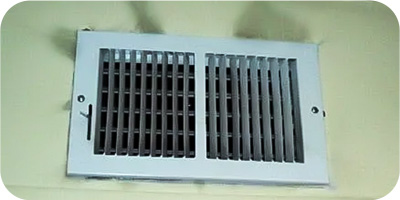


There are a number of different things that will tell you that the air conditioning system needs cleaning. First, and most evident, is that dirt, dust and debris is blowing out whenever the furnace or A/C is running. Second, you may notice a musty, dust odor which could indicate a dust and dirt build up. You may notice black streaks spreading out from the vents. Are people experiencing allergic reactions or feel itchy or out of sorts when the system is running? Has there been recent construction or remodeling in the home? Has there been a nearby fire? All these point in the direction that it’s time to clean the system.
The most certain way is to look. If you are so inclined, you can remove a vent and inspect the interior of the ducts. Or if you have a regular A/C service company, have them take a look and let you know the condition of the system. They will be dirty or not. Or if it’s been 10 years or more since it was last cleaned, you should consider doing so again.
How often should an air conditioning system be cleaned?
There is no firm answer to this. Remodeling projects that generate construction dust and debris, water or smoke damage (like the kind we see in Southern California), having numerous pets, poor housekeeping or infrequent replacement of air filters are all things that can contribute to a system getting dirty sooner than expected.
However, under normal usage, normal environmental circumstances and proper maintenance, a system could go 7 years or more before needing to be cleaned again providing the cleaning was properly and thoroughly done in the first place
Can a dirty system stop the air flow?
A residential system rarely, if ever, gets so dirty that it stops or even noticeably reduces the air flow. But a dirt build up does lead to less efficient operation of the equipment, particularly within the furnace itself.
What is that stuff in the duct system?

In a residential HVAC system, you can find a wide variety of “stuff”. Bulk testing of the debris taken out of a system typically contains skin and pet dander, pet hair, paper fibers, ferrous oxide (rust particles), insect parts, clothing or cloth fibers, oil (as in cooking oils), general miscellaneous bulk material (nuisance dust), fibrous material (fiberglass fibers). It's not limited to these things, but the above list are the most common things found. It can also include mold spores and other organic material.
In addition to the usual accumulation of dust and debris, we have seen an incredible range of other things in A/C systems. Crayons (a lot of crayons!), toys, dried up gummy bears, old construction debris, bits of clothing, evidence of rodents, empty beer cans, shoes (how did those get in there?, I don't know!), jewelry. You name it, we likely have seen it!
For more information, see our article on this subject here:
What's that Stuff in Your Air Ducts?
What about mold?
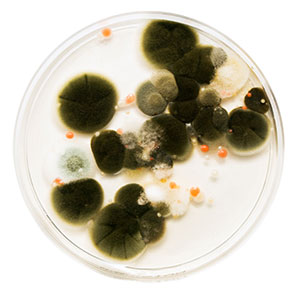
Mold can and does occasionally occur in residential systems, and when it does, it should be taken care of. But it is not common, not nearly as often as the hype would lead one to believe. Mold growth requires moisture and contaminants like dirt build up. Additionally, since mold in general is everywhere in our natural environment, it takes a large amount of specific types of it to negatively affect people.
If there has been some water damage or the A/C has been operated at very low temperatures for extended periods of time (which can lead to excessive moisture in the ductwork), mold can develop. But under normal conditions and operation, harmful levels of mold is a rare occurance in residential situations.
If there is suspected mold or concern that there might be mold, it can be tested. However, unless it is severe or evident in the structure of the home, a good cleaning of the A/C system followed by santizing most often will handle mold found in an A/C system.
For an in depth look into the basics of mold and the effects of mold, see Steve Huff's articles on the subject:
Can a dirty system cause allergies?

Allergic reactions to dust is common. Dirt, dust and other contaminants in a system can be an irritation and can aggravate allergies, particularly when there is some sort of microbial or fungal contamination such as mold.
However, a dirty system does not cause allergies. The causes of an allergy is something best determined by medical examination and tests. Cleaning a system can reduce exposure to the things that can trigger allergies.
Should a system be sanitized once cleaned?
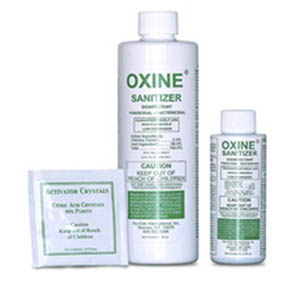
Sanitizing a system, while it sounds good, is really only needed when there are positive indications of microbial or fungal contamination such as visible mold growth or slime in the condensate pans. The presence of such cantaminents can be confirmed by laboratory analysis of samples taken from the system.
But if those things are not present or suspected, it is not necessary to sanitize. Just as you wouldn't take cold medicine if you didn't have a cold or the onset of cold symptoms, you wouldn't sanitize without indication that it is needed. And only use sanitizers registered with the EPA for use in HVAC systems.
See our article regarding santizing for further information:
To sanitize or not to sanitize.
Will duct cleaning get rid of the bad odors?

Many times, musty odors, “burning dust” smells, irritating marshy odors and similar smells are coming from contamination within the system. In these cases, cleaning will definitely reduce, if not fully eliminate the foul odors.
But odors are elusive and can originate from many sources. The air ducts move air throughout the house and as a result, the odors seem to come from the system itself when in fact, the odor may be coming from, say, damp rotting leaves just outside the house, or a pile of laundry in a teenager’s bedroom closet or an unsuspected water leak in the crawlspace. Cleaning will definitely improve the situation, but cleaning will not prevent the A/C system from transmitting odors from one part of the house to another, so it is important to locate the source of the odor and handle that as well.
See our article on the topic.
What type of filter should I use in my system?
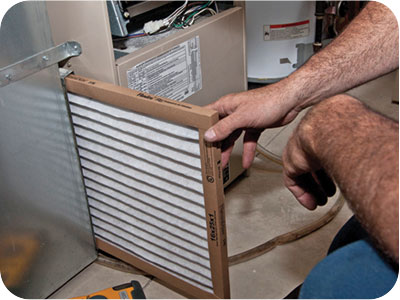
We recommend a good pleated filter Merv 8 to Merv 11. Anything higher will cut down the efficiency of the AC and overtax the equipment. Anything lower is not effective to remove particles from the air. We recommend changing the filter at least twice a year. Many manufacturers recommend changing the filter 4 times a year.
See our article on the topic of which filter to use.
How to choose a filter Check out our chart.
Aren't HEPA filters even better?
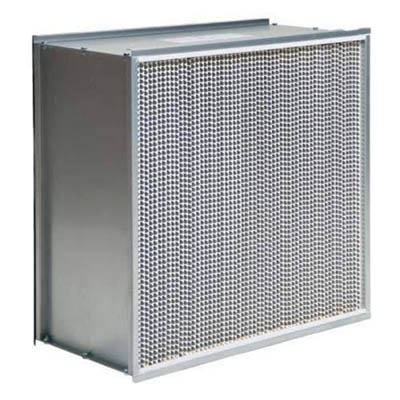
Oh, yes, they are better - a HEPA (High-Efficiency Particulate Arrestance) filter will remove 99.7% of all particles 0.3 microns and larger out of the air. But that level of efficiency comes at a cost. The cost is air flow. Such high filtration drastically reduces the air flow of a system which means less air being ciruclated. Also such restrictions put a tremendous strain on the air conditioning equipment. A typical residential furnace simply does not have the oomph to work through such restriction resulting in eventual damage to the equipment. Besides, that level of filtration is generally not needed in a home environment.
Stick with a decent pleated filter, and it will be just fine.
That's all for now, but that's not all.
There are a lot more questions we receive on a regular basis. Like, "how is it done?", "Can my whole house system really be cleaned for $49?" or "What if there is asbestos?"
These and many other questions will be taken up in the next article.
Until next time!






